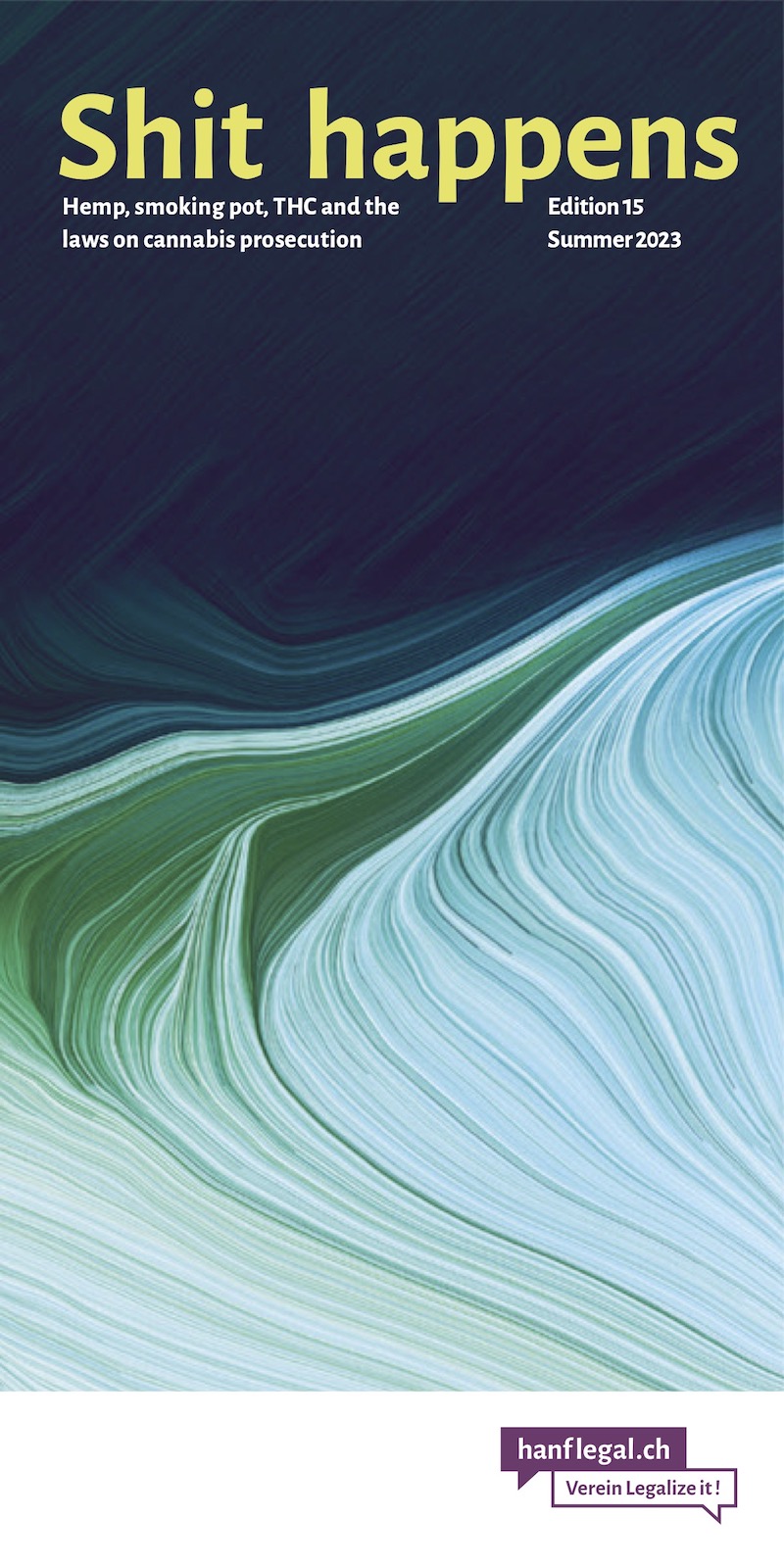- THC & Law:
Is this really successful policing?
For many years we have been collecting media articles on the subject of hemp in what is now 48 folders. One of the subchapters deals with the repression against the trade.
Again and again, police and media suggest that the police work is crowned with success: “Aargauer Polizei glückt grosser Darknet-Schlag” (Aargau police succeed in a big Darknet strike) was the headline of the Tagi on 9.8.17. “Über 800 Hanfpflanzen sichergestellt” (Over 800 hemp plants seized) could be read in the Luzerner Zeitung on 19.7.17. On 7.7.17, the Tagi reported the discovery of 100 kg of marijuana.
Is this really successful police work? Of course not. The total market of cannabis in Switzerland is probably in the range of 50 tons per year, of which maybe 2 to 3 tons are seized. So hardly 10% of the goods are seized.
But the caught cultivators and consumers are very much affected: high penalties await them. And the officials are satisfied with their investigative activities. But the market as a whole? It continues to run without any problems. The arrested dealer is immediately replaced, and for every indoor grower busted, a new one moves in. Perhaps a consumer will have to search a little longer and pay a higher price. But otherwise? Business as usual.
The illegal market needs these “haircuts” by the police and public prosecutor. This is the only way to maintain the current trade structures: First, repression keeps prices high. Without prosecution the price would be much lower - if you were allowed to grow on your own balcony, it would be close to zero. Secondly, police work prevents expert sales outlets from offering controlled, clean goods. Instead, some people trade with some “qualities”.
The hemp prosecution thus makes the illegal profits possible in the first place. Only a small minority of police and public prosecutor seems to have realized: Prohibition has failed. But the majority just carries on as before and finds the approach sensible. Thus the spokesman of public prosecutor Basel-Stadt in the BaZ of 21.7.17: He wants the sovereign to continue to reject all drug liberalizations, “because such experiments with uncertain outcomes are dangerous.” He seems to like the experiment of hemp prohibition that has been going on for decades.
When I co-founded our association in the early 1990s, a meeting was held in a squat. After our meeting, a resident of the house joined us and we immediately asked him if he also wanted to become active for legalization. He thought a bit and then said something sobering:
“No, as a pot dealer, I have to say that if it became legal, I would be out of a job.” He had already understood that then - I after that conversation. An insight that has remained hidden from the criminal authorities to this day.
Support our work with a donation:
Bank transfer
Account number (IBAN):
CH02 0900 0000 8709 1354 3
Full account details
Or scan this QR code with your eBanking App (ZKB, Revolut, Postfinance, …):

Or open/share the QR code as PDF file with your eBanking App.
Credit card
Donate via credit card
Verein Legalize it!
Quellenstrasse 25
8005 Zürich
Threema ID 7NH65RBY
Don’t miss anything! Follow us on social media:
